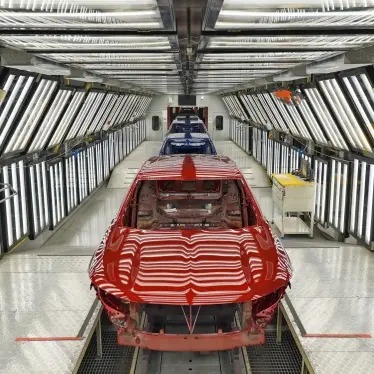We are writing on behalf of Human Rights Watch with regard to the decision of the European Commission on June 12 to announce tariffs on Chinese electric vehicles (EVs) imported into the European Union.
As consultations are ongoing with the Chinese Ministry of Commerce to discuss these concerns and seek a way forward, we encourage you to consider, beyond the state subsidies, other reasons leading Chinese EVs to be sold at prices below market in the EU. In particular, we urge you to assess and factor in the impact on Chinese EV production costs of state-imposed forced labor in factories based in the Xinjiang Uyghur Autonomous Region. Other key factors to consider include the Chinese government’s longtime practice of suppressing labor costs by violating human rights, including by prohibiting independent labor unions and persecuting labor activists.
In this context, we encourage you to consult with civil society groups with expertise on the issue of forced labor and other human rights violations in the EV production chain in China.
State-imposed forced labor is only a part of an overarching system of control and repression of Uyghur and other Turkic communities, including arbitrary detention of an estimated one million people at the height of the crackdown, torture, enforced disappearances, mass surveillance, cultural and religious persecution, separation of families, sexual violence, and violations of reproductive rights. A report by the Office of the United Nations High Commissioner for Human Rights (OHCHR) in August 2022 stated that such abuses “may constitute international crimes, in particular crimes against humanity.”
The connection between state-imposed forced labor in the Uyghur region and EV batteries components such as lead and lithium was documented in Sheffield (UK) Hallam University’s December 2022 report “Driving Force,” and more recently in Human Rights Watch’s report “Asleep at the Wheel,” which focused on the aluminum value chain as an essential component in dozens of automotive parts, from engine blocks and vehicle frames to wheels and battery foils. Xinjiang’s aluminum production has grown from approximately one million tons in 2010 to six million tons in 2022. More than 15 percent of the aluminum produced in China, or 9 percent of global supply, now comes from the region. Xinjiang produces more aluminum than any country outside of China.
The EU “reiterated its persistent concern on the use of forced labor” at the recently held EU-China Human Rights Dialogue. Reiterating such concerns in ongoing consultations on EVs would allow human rights discussions to be mainstreamed across different areas of EU engagement with Chinese authorities instead of being compartmentalized into unproductive human rights dialogues with China. Failing to do so would miss one of the key strategic reasons why Chinese EVs can be sold at below-market prices, as we believe state-imposed forced labor should also be taken into consideration as “a form of State support” to the EV production chain.
We call upon you to use the ongoing consultations to urge the Chinese government to end crimes against humanity against Uyghurs and Turkic Muslims in Xinjiang and elsewhere and implement the recommendations of the August 2022 OHCHR report on Xinjiang, including:
- Release everyone who remains arbitrarily detained or imprisoned;
- Investigate and appropriately prosecute government officials implicated in serious violations of human rights and crimes against humanity; and
- Grant free and unfettered access to Xinjiang to independent monitors, as requested by the UN High Commissioner for Human Rights and several UN Special Procedures.
Such a call would also ensure coherence with the pending Forced Labor Regulation, which enables the European Commission and EU member states to take steps to block entry into the EU market for products made with forced labor.
We also urge that any tariffs collected from EVs originating from China are directed towards the implementation of the forthcoming EU Forced Labour Regulation; creating remediation funds, including recovery and care for Uyghurs and other Turkic communities; and supporting Uyghur and Chinese labor rights organizations.
We remain at your disposal to discuss these recommendations,
Yours sincerely,
Philippe Dam, EU Advocacy Director, Human Rights Watch









































